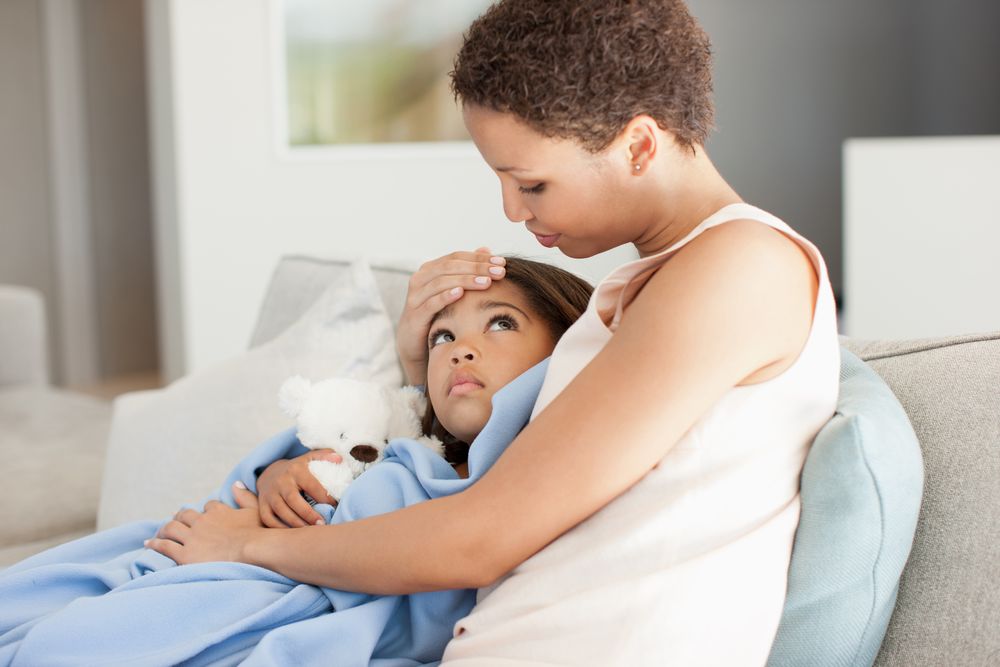Gastro prevention in child care
Published on Wednesday, 28 August 2019
Last updated on Tuesday, 31 December 2019

There's nothing fun about gastroenteritis. This highly-contagious bowel infection causes nausea, vomiting, diarrhoea, fever, and stomach pain, and it can spread like wildfire when hygiene standards slip.
There is good news, though. NZ researchers have found that by quickly reporting gastro outbreaks, early childhood education (ECE) services, rest homes, and hospitals have succeeded in both reducing the number of people getting gastro and reducing the length of gastro outbreaks.
As well as reporting outbreaks, ECE services also work hard to prevent the spread of gastroenteritis amongst their children and staff, so let's look at how gastro is spread and what ECE services do to prevent this.
How does gastroenteritis pass around?
Norovirus is the most common virus that causes gastro and according to the Ministry of Health, it can be spread easily when people:
- Consume contaminated food or drinks – eating lunch prepared by a sick educator.
- Touch contaminated surfaces or objects, then puts their fingers in their mouth – like playing with a toy used by a sick child, then sucking their thumb.
- Come into direct contact with an infected person – sharing snacks with a sick child.
- Connect with infectious particles in the air – being near a sick child when they vomit.
When a person contracts gastro, their poo and vomit are infectious too, and because there are several ways to catch gastro, it's important to focus on hygiene and treat the illness with caution.
What are the responsibilities of ECE services around hygiene and infection control?
Whether or not there is a gastro outbreak, licensed ECE services are bound by law and regulation to provide healthy and hygienic environments and procedures.
Under the licensing criteria for ECE services, they must, 'Take all reasonable steps to promote the good health and safety of children' and also, 'Take all reasonable precautions to prevent the spread of infection among children' enrolled with them.
In practice, this means:
- Licensed ECE services need to have hygienic premises, furniture, fittings, equipment and materials. Food preparation areas must be hygienic; toilets must be 'adequately separated' from play and food preparation areas to stop the spread of infection; and there must be a way to properly dry hands after going to the toilet to also stop infection from spreading.
- Nappy changing facilities must be hygienically clean and located near hand-washing facilities, with staff following a safe and hygienic nappy changing procedure.
- All linen used by children and staff must be hygienically laundered.
- The ECE service must also have facilities for washing sick or soiled children, and a procedure for doing this hygienically and controlling infection.
What's the best way to prevent the spread of gastro?
Good old-fashioned hand washing is a simple and effective way to prevent the spread of gastro. Both adults and children should wash their hands well with soap and running water for at least 10 seconds after using the toilet, changing nappies, before and after handling food, or helping a sick child.
Parents should help children wash their hands properly at drop-off and pick-up, and as well as washing hands with soap and water, KidsHealth recommends these strategies to prevent the spread of gastro:
- Keeping toilet areas clean
- Washing soiled clothes separately and well
- Ensuring there's no sharing of food and drinks
- Keeping sick children and staff stay away from the ECE service
In terms of general hygiene, ECE services also use these forms of hand-hygiene:
- Alcohol-based hand rubs – which reduce the number of germs on hands, but don't remove dirt
- Antibacterial soap – which kills some bacteria, but not viruses, like viral gastroenteritis
- Hand-drying – which helps remove any germs that haven't been rinsed off by hand washing
- Effective environmental cleaning – which involves the routine cleaning of surfaces, door handles and toys with detergent and water, then rinsing and drying
Keep in mind, though, that soap and water is the number one way to prevent the spread of gastro.
How long should unwell children and staff stay away from an ECE service?
Because gastro loves to jump from person to person, the Ministry of Health states, 'It is important for you to keep your child at home when they are ill' to stop the infection spreading.
HealthEd's Infectious Diseases Table outlines the exclusion periods for common childhood illnesses. Norovirus, which affects children and adults, and rotavirus, which mainly affects babies and children, are two viruses that commonly cause gastro, and the table says that people infected with either should stay home until they feel well and for 48 hours after their last bout of diarrhoea or vomiting.
Although it can put pressure on working families to keep sick children at home, this is vital if their ECE service is to stop the spread of gastro. The inconvenience and stress of keeping one child home reduces the risk of many others getting sick, and because gastro is mainly treated with rest and by drinking plenty of fluids, staying at home is also the best way to recover.
The health and safety of children is a priority for ECE services, and although there will be times when gastro is going around, good hygiene practices and effective exclusion polices work wonders in reducing the spread of infection.
Related Articles

Keeping Your Child Healthy in Child Care
Child care services and illness go hand-in-hand, this article offers pointers to help parents keep their child healthy and prevent the spread of germs.

Vaccination Rules for Child Care and the National Immunisation Schedule
How vaccination rules apply in child care and how the government encourages families to immunise.

5 ways to boost your child's immunity for care
Children have a lower resistance to germs, are more susceptible to illness, and as temperatures cool over winter, viruses often stick around for longer.
